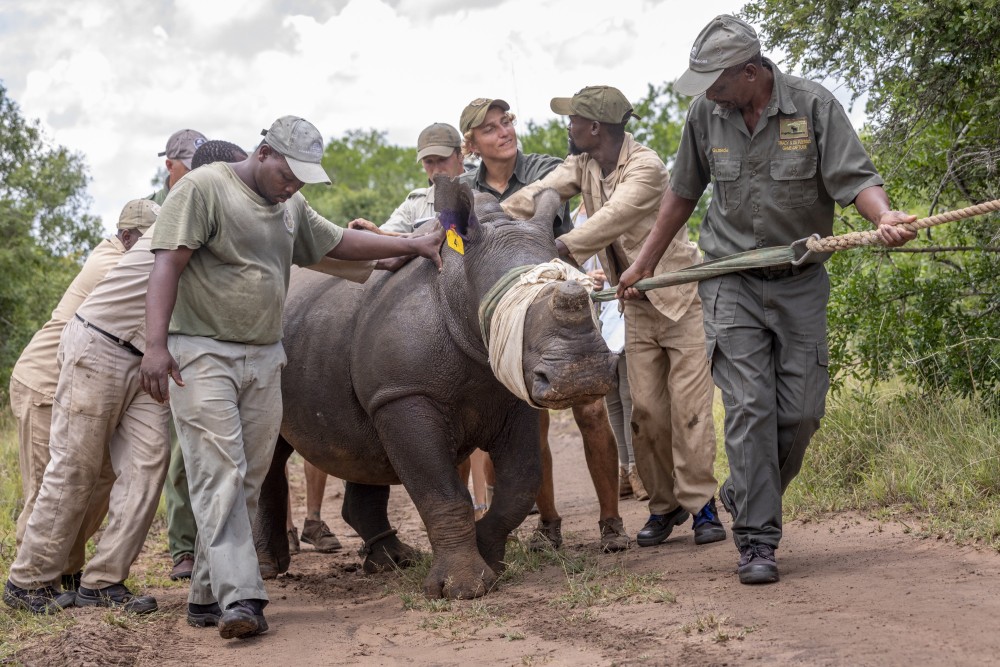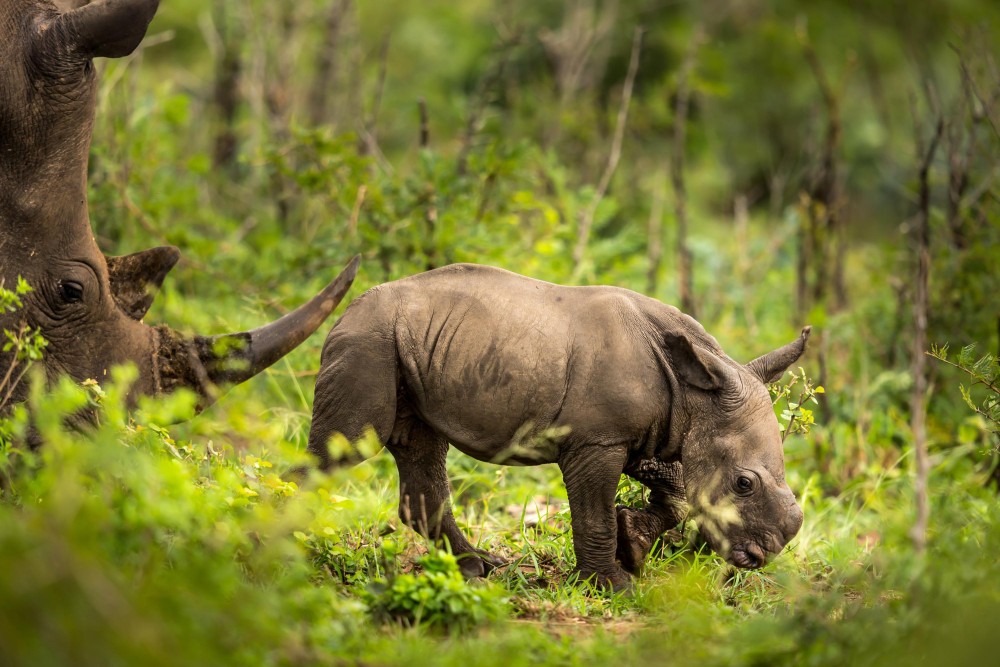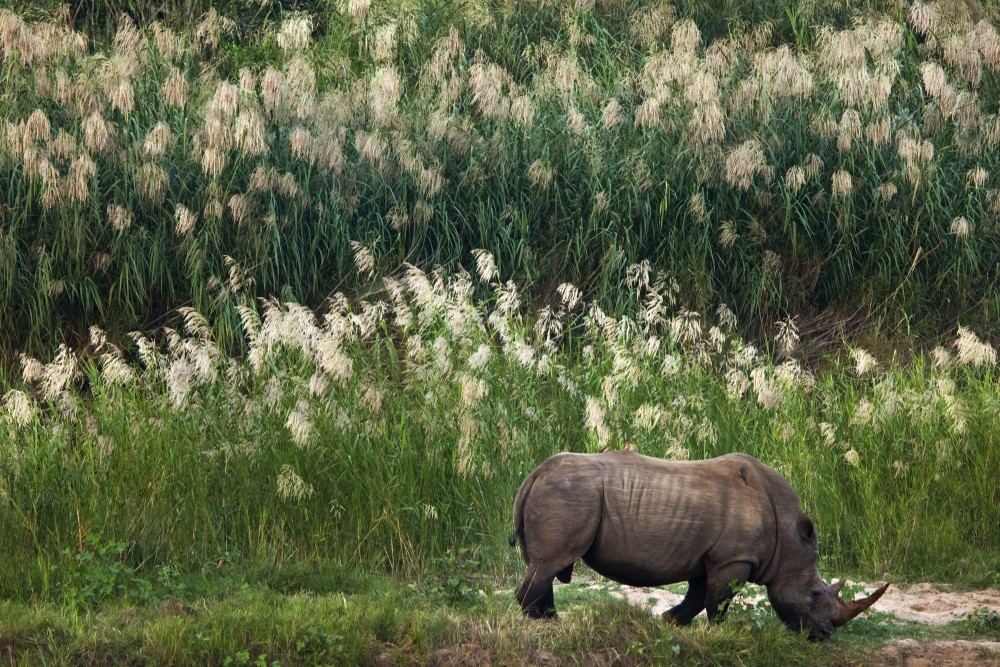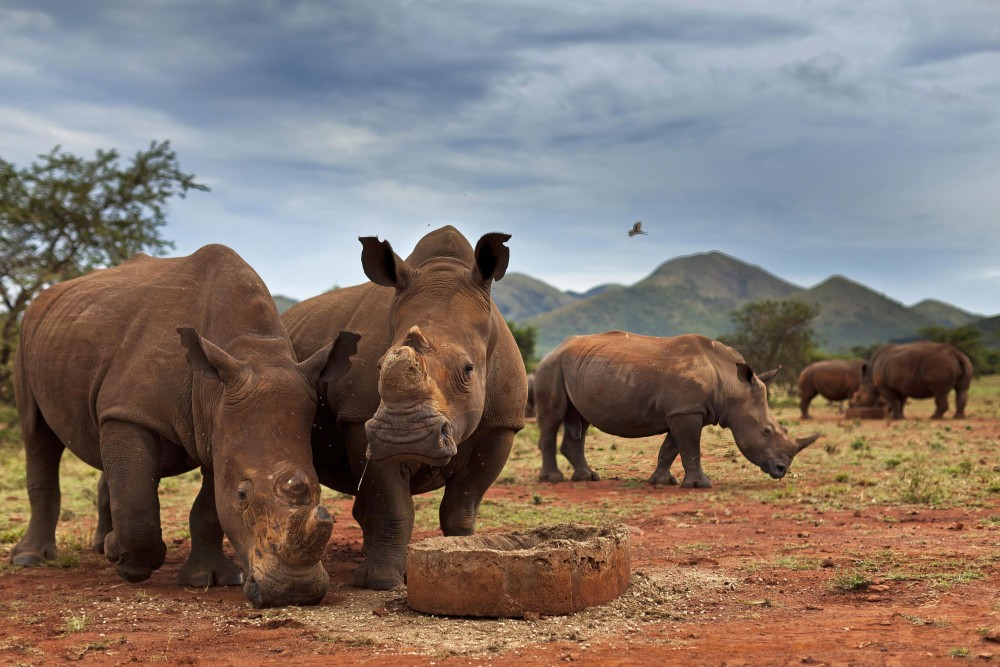Rewilding 2,000 Rhino
African Parks has purchased the world’s largest captive rhino breeding operation in a bid to rescue and rewild the rhino to safe and well-managed protected areas across Africa.
African Parks is now the official custodian of 2,000 southern white rhino, with one, clear intent: to rewild these rhinos over the next ten years. Our vision is to translocate them to multiple well-managed protected areas across Africa, establishing or supplementing strategic populations, helping to secure the future of the species across Africa.
Click here to read the press release.
The Challenge to Save 2,000 Rhino
As a result of financial stress, a private captive rhino breeding operation, “Platinum Rhino”, in the North West Province of South Africa, which held in excess of 2,000 white rhino, was put up for auction on the 26th of April, 2023. Having failed to receive any bids, the rhinos were facing serious risk of poaching and fragmentation, as they most certainly would have been sold off incrementally as part of a liquidation process and would have been lost to conservation forever.
Given African Parks’ track record in creating safe wild spaces, and experience in carrying out wildlife relocations at scale from moving 500 elephants across Malawi, to bringing rhino back to Rwanda, Malawi and most recently, to the Democratic Republic of Congo, we agreed to requests from the NGO, governmental and philanthropic sectors to provide a solution to this potential conservation crisis.

The Solution
After a feasibility assessment and the endorsement of the South African Government, and securing initial emergency funding from key donors, African Parks agreed to purchase the farm, equipment and all the rhinos, but with one clear, sole intent: to rewild the 2,000 rhinos and their future offspring (estimated to be 100 per year) over the next 10 years, and to realise their conservation value.
African Parks’ vision is to translocate the rhino to well-managed protected areas across Africa, to supplement or create strategic populations to protect the long-term future of the species.
Some rhinos will be moved to safe places within South Africa, with the rest going to other countries across the African continent.

Rhinos Symbolise Healthy Wild Ecosystems
The benefits of rewilding 2,000 southern white rhinos, estimated to be up to 15% of the total remaining wild population, during the most critical decade for conservation will be immense. Once returned to protected areas across Africa, these rhinos will contribute to wild ecosystems by providing nutrient cycling, storing carbon, and increasing tourism revenue for local people.
The Status of Southern White Rhinos
Southern white rhinos are one of two remaining subspecies of white rhinos; the other is the northern white rhino of which only two captive females remain, making it functionally extinct. The southern white rhino population reached an all-time low of 30 to 40 animals in the 1930’s, but due to extensive conservation measures, and through an initiative in the 1960’s, known as ‘Operation Rhino’, they increased to approximately 20,000 individuals by 2010.
However, these gains were quickly lost, as more than 50% of the global population, around 12,000 rhinos, have been poached in the last ten years alone. Due to continued poaching for their horns for the illegal wildlife trade, and ongoing habitat loss, southern white rhinos are listed as near threatened on the IUCN Red List. Eighty percent of the global population are found in South Africa, with other strongholds located in Kenya, Uganda, Namibia and Zambia, and small populations now in Rwanda and the DRC.
Turning a Farm into a Sanctuary
African Parks’ sole intention is to turn the Platinum Rhino farm into a rhino sanctuary, phasing out active breeding, and relocating all 2,000 rhinos to protected areas across Africa.

African Parks’ Track Record
African Parks has conducted multiple wildlife translocations and reintroductions–moving over 8,000 animals from 32 species to help repopulate parks and re-establish populations across Africa. These efforts have resulted in bringing rhino back to Malawi, Rwanda, and the DRC; as well as bringing lion, cheetah, leopard, and wild dog back to Malawi, along with a historic 500 elephant initiative. Through these wildlife translocations, we have learnt and gained valuable experience to consistently refine our approach so that we can ensure a greater likelihood of success for every translocation we undertake.
African Parks’ core work is the management of 22 parks in 12 countries across Africa, where poaching has either been significantly reduced and, in some places, eliminated. Having safe places for these rhinos to exist is the key element in making this project successful. While there are always risks and challenges with moving animals, African Parks has done a thorough assessment, and believes the risks of not taking on this rewilding project for a species as threatened as the southern white rhino far outweigh the risks associated with it. To ensure this these translocations are carried out effectively, we will undertake thorough on-the-ground assessments and work with multiple Governments as well as conservation organisations across the continent to identify (outside of our own portfolio of parks under management) secure, well-managed areas to establish strategic rhino populations across the continent.

African Parks has years of work ahead to ensure these 2,000 rhinos are rewilded safely to protected areas, while continuing our core work of creating safe wild spaces across Africa. But none of this work is possible without the ongoing support of people like you who are helping to make an indelible conservation impact.
Donate to Support Our WorkYour Support Goes a Long Way
At African Parks we are working everyday to protect Africa's last wild landscapes. By donating to us, you are making a difference and are giving hope to people and wildlife across the continent.
Donate